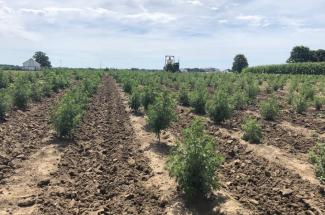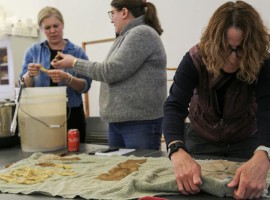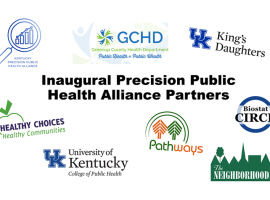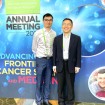UK, ArtemiLife Partner to Test for Anti-Cancer Activity of Artemisia Annua Extracts

The University of Kentucky and ArtemiLife Inc. will collaborate on a clinical study using the extract of a medicinal plant grown in Kentucky to test for anti-cancer activity of Artemisia annua and to determine the recommended dose of Artemisia annua for future clinical trials.
The clinical study, conducted by the UK Markey Cancer Center, will focus on women with ovarian cancer. The study will assess the biomarker influence and kinetics of Artemisia annua extract utilizing ArtemiLife’s tea and coffee products.
“Our team has brought Kentucky-grown Artemisia annua from the field, to the laboratory, and now to our patients with ovarian cancer,” said Jill Kolesar, cancer researcher and director of the Precision Medicine Clinic at the UK Markey Cancer Center.
ArtemiLife Inc. and agriculture company ArtemiFlow USA have been working with the UK College of Agriculture, Food and Environment, and the Kentucky Tobacco and Research Development Center (KTRDC) under a cooperative agreement for the last three years to research how Artemisia annua grows in Kentucky and to explore the plant’s similarities to tobacco crops.
“The University of Kentucky has been a great partner and asset as we continue exploring Artemisia annua. Collaborating with the Agriculture Department and the Markey Cancer Center in parallel has quickly generated a lot of momentum,” said ArtemiLife CEO Adam J. Maust.
“The opportunity to focus on ovarian cancer is a great start for this first clinical study and the results will hopefully lead to additional cancer studies,” continued Adam Maust.
Patients will take a series of ArtemiLife tea and coffee formulations that include Artemisia annua over the course of 30 days. The assessment will include measuring downstream biomarkers, monitoring adverse effects and assessing disease progression.
Traditionally, Artemisia annua has been used by extracting the compound Artemisinin from the natural plant. Treatments containing an artemisinin derivative, artemisinin-based combination therapies (ACTs), are now standard treatments in many parts of the world for malaria.





